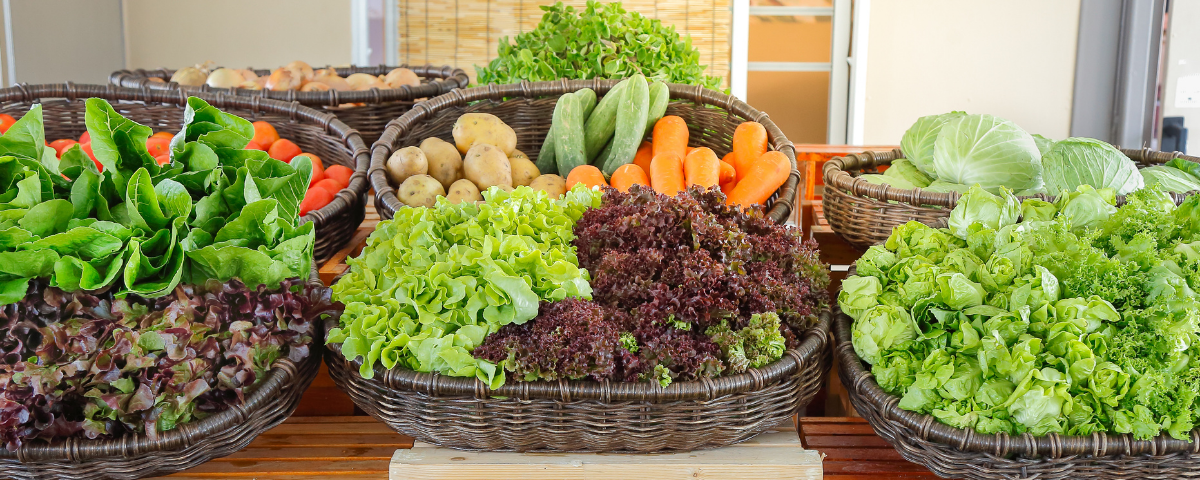How to Clean and Store Fresh Produce
Fresh produce is a wonderful thing. It can make you feel both energized and relaxed. Its varied flavours and nutrients can also make you feel like you can conquer the world. The problem is your body doesn’t really know how to handle fresh produce efficiently. The body needs to learn how to digest it properly. And to do that, you need to eat it properly.
Caring for fresh produce is a great way to get involved in taking better care of your health, and it’s also a great way to save money. The good news is that there are simple ways to do this, and the key is to ensure that you are storing the produce properly in order to increase its lifespan. Do you know how to clean and store fresh produce?
Always Store It Clean and Fresh
Keeping produce fresh can be a pain. When you need to get a head start on weekend meals, you often have to deal with the food in its ripe stage, which doesn’t have the greatest taste. Bacteria from the produce can also cause problems with the taste, texture, and appearance of the food. Avoid bacteria growth and waste your precious produce by learning how to clean and store fresh produce.
Check out the following helpful tips:
- Select only the freshest of them all. Whether storing a week’s worth of food or a year’s supply of fruits and veggies, consistently selecting the freshest produce will ultimately make a big difference in the way they taste and what their overall quality is like. Understanding how to select and clean produce is the first step to making sure your foods are always fresh and at their best.
- Always consider the condition of the produce. Most of us buy fresh produce at the grocery store and prepare them at home. But the freshness of your fruits and vegetables can be affected by more than just their storage conditions. Ethylene gas, produced by fruits and vegetables and given off when they ripen, can cause the produce to spoil. Fruits and vegetables also release oxygen when they are cut, which can draw in ethylene that causes spoilage. And if the air in your fridge is cold, the produce will last longer if it is stored at room temperature.
- Clean it properly. Cleaning and storing fresh produce is easy. First, wash the produce. Next, rinse the produce under cold water to remove any dirt and debris. Lastly, pat the produce dry with a clean cloth or paper towel.
- Keep them refrigerated. There are various ways of storing fresh produce, but we’ve found that keeping them in the refrigerator and helping them to stay fresh longer is the easiest. Fresh fruits and vegetables are a great source of vitamins and minerals, but they need to be treated with care when you prepare them for consumption, as they can go bad quickly. In the fridge, produce should be kept at 40 F to 70 F and at lower temperatures if it is going to be refrigerated for longer. It’s therefore vital that you make sure that your fridge is working at all times and, should something go wrong, you know someone to call who is going to be able to repair refrigerator for you.
- Some foods are meant to be kept outside the refrigerator. The assumption that fresh produce should be stored in the fridge is not the case. Some fruits and veggies should be kept at room temperature, and others, like apples, should be stored in the refrigerator. The most important thing to remember is that while their flesh is still good, a lot of their beneficial vitamins and nutrients are lost in the process of maturation. Produce that needs to be stored in a non-refrigerated dry space has its own risks. For one, you have to keep it away from direct heat and humidity. For another, there is a risk of rodents and pests feasting on them, which is why you should have your storage space inspected by Pest Control Experts before you start using it. Lastly, regularly keep the space clean to prevent any further problems from happening.
- Create a healthy food storage system. The food storage method is one of the most important steps in using your garden or starting a small farm. While you can store some food naturally, you’ll need to rely on other methods. Building cold storage is considered to be an efficient solution for storing fresh produce. You can assess the needs of your farm produce and choose a suitable location to build the storage unit. You would also have to consider. Once that is done, look into the design of the construction, appropriate cooling systems, and humidity control for cold storage. In addition to this, you may also need to install good-quality frp doors that prevent outside heat entering the unit and destroying the harvested products. These doors are said to be corrosion-resistant and can last for a long time. Once you have your own cold storage, you can prevent damage to farm produce therefore increasing your profit as well.
While most of us know that fruits and vegetables are healthy and nutritious, many of us struggle with the task of keeping them fresh. If you’ve ever put a rotten apple in a brown paper bag, you know that even fresh foods can lose their nutrients and begin to decay in as little as three days.
As healthy eating becomes more popular, the number of food people throw away rises. Enough food gets wasted that, in the U.S. alone, it costs approximately $165 billion a year to grow, transport, and dispose of it. But it doesn’t need to be this way. Knowing how to store and clean fresh produce preserves nutrition properly and prevents food waste.

